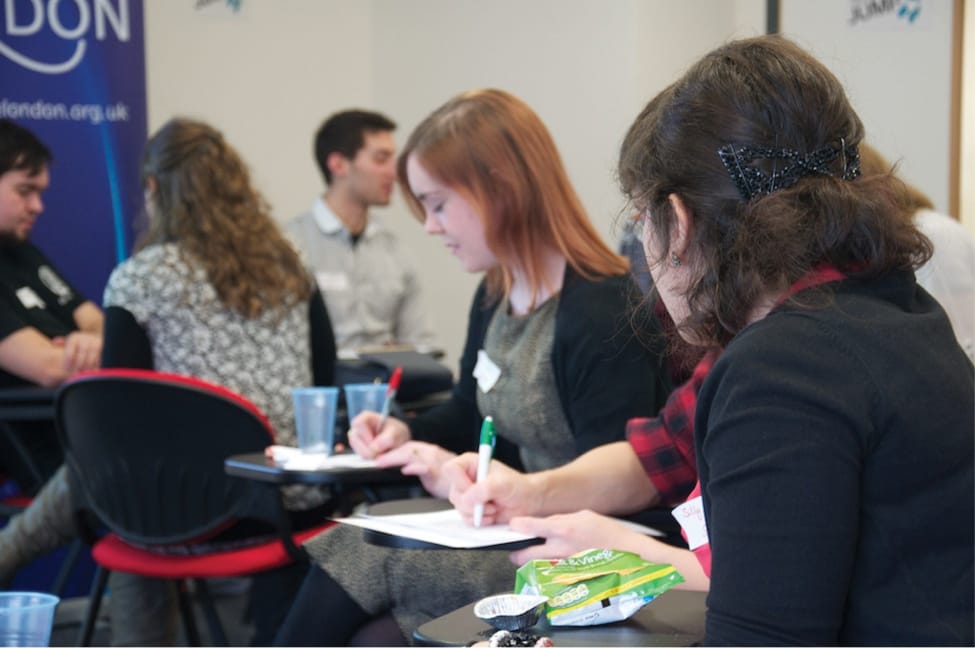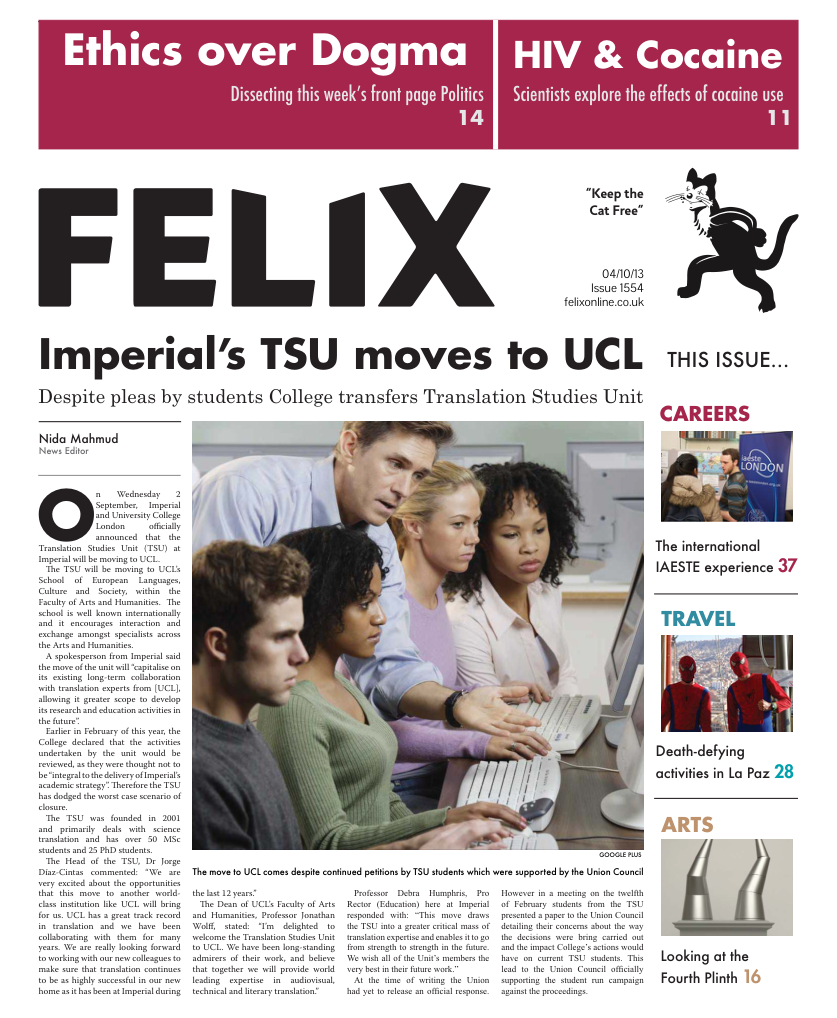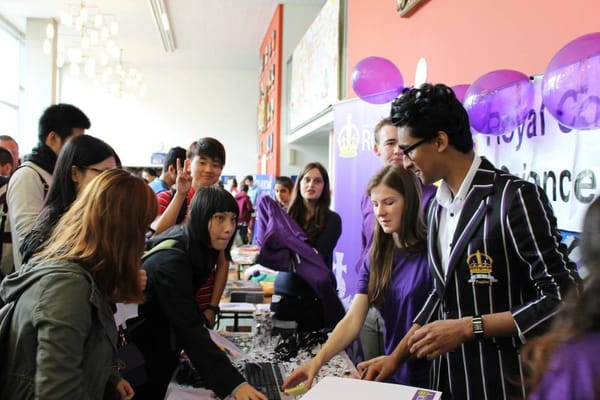IAESTE - A journey without an end
IC Alumnus Enrico Fantoni talks about his experience as a second year Chemist on an IAESTE placement.

It was something as innocuous as an online search where I discovered the International Association for the Exchange of Students for Technical Experience - or IAESTE (eye∙ee∙es∙ta) –during my second year reading Chemistry at Imperial College London. I’d already considered a number of similar schemes, all offering undergrads the opportunity to work abroad for 6-12 weeks during the summer (sometimes a year) with full pay, but often only in business, language assistance, the tourism industry or with some other caveat or restriction. IAESTE on the other hand, which is run by the British Council in the UK (the same folks who manage the well-known ERASMUS) is focused on science, technology and applied arts placements i.e. exactly the kind of work experience that is relevant to me. IAESTE has been running for 65 years, operates in over 80 countries and organises more than 4,000 student internships every year at over 1,500 companies and institutions globally. Many of these organisations are leading universities and industrial firms. Fast forward a year, my plane is departing from Copenhagen airport and my eyes are glazed over thinking about the summer I’ve just had. Two months earlier I had started at the Danish Technical University (DTU). My project concerned molecular modeling of the energetics of the interaction between an enzyme and a variety of lipid substrates. It was my first exposure to working in a research group, to interdisciplinary collaboration and to the challenges posed by approaching a new research field. It introduced me to Computational Chemistry, a field that I knew little about. I had the opportunity to compare the British university system with the Danish one, to converse with local PhD students about their motivation and ambitions and to make friends with students from around the world. My accommodation was in the university student halls, which were conveniently located on campus. I was surprised to find that Danish halls of residence provided every kitchen utensil that a professional chef could dream of. And that all students enjoyed en suite rooms for a very reasonable price. One of the biggest challenges of living abroad is the isolation one can face upon arrival. I was certainly disheartened during my first couple of days and I experienced culture shock, but it was a challenge that IAESTE helped me to overcome. The Danish and UK IAESTE officers were on hand for any occurrence and every other international trainee in Copenhagen was only alone for as long as it took to discover one another. In each major IAESTE city there is a Local Committee (LC) made up of local students, typically IAESTE alumni, and Copenhagen was no different. Every Tuesday the DTU LC organised a social event for the 20 international trainees to mingle and meet with local students. Each weekend involved a Danish-inspired activity, ranging from a stroll through the capital, making the most of the flat landscape to cycle or visiting the museums around town. The rain never stopped us from attending the many festivals which Copenhagen is famous for: we listened to everything from live jazz to punk-rock beats, learned how to dance to the rhythm of salsa and stood silently before the beauty of the moonlit Kronborg castle. The person that landed back in London was not the same one who had left eight weeks earlier. This person had a newfound understanding of other cultures, a clearer idea of the path they wanted their academic career to take and the knowledge that IAESTE could offer even more. My experience was unique, yet not singular. I discovered that a group of like-minded IAESTE alumni were setting up a Local Committee in my very own city. The group shared the same IAESTE spirit and I’ve since found myself carried away by the ambitious project of setting up the group in London, expanding it in size and endeavoring to instill the same IAESTE passion in UK students and those international trainees lucky enough to land on our shores. If you’re interested in experiencing a new culture and applying yourself, then look out for us at your next career’s fair or on our website. During the autumn term we allow students to register their interest on our website before the December 10th deadline. Then in February, we contact those who have registered with a list of available overseas job placements, and applicants submit a complete, formal application including CV and references. Finally, those who succeed in their application are helped with any visa, travel and accommodation issues and given pre-departure training prior to their placements.
Local Committee: an experience worth a thousand internships
I like to refer to my involvement as a volunteer in the London Local Committee as my IAESTE Plus experience. My internship was the tip of the iceberg; the organisation itself holds an enormous amount of potential for a person. The scope of the LC is wide-ranging. Our immediate role is as an ‘on-the-ground’ outpost of the British Council IAESTE office, being the faces and smiles of IAESTE in welcoming new students and preparing those who are leaving to go abroad. During the summer, we take care of the international trainees resident in the UK, arranging summer trips, weekly socials and cultural events. For the remainder of the year, you’ll find us at careers fairs promoting IAESTE, networking with employers and institutions trying to secure new placement opportunities and working in collaboration with the British Council.
Joining the LC is a flexible commitment. A big reason to be a part of it is that committed members are rewarded with a guaranteed IAESTE internship the following summer, which is significant given how competitive securing placements can be. However, the majority of our members are drawn to the LC simply because the experience is fun: besides being rewarding, the spirit of the group – the “IAESTE spirit” – is openly social. Last year the London LC organized exchange trips (“twinnings”) with Istanbul, Zagreb and Split; we held barbecues, a New Year’s Eve party, a Christmas dinner, attended festivals and concerts and many more events. The LC is first and foremost a group of friends that is open to everyone. What’s more, the London LC is an international organization. It has a worldwide reputation and is proud to attract members from other LCs globally, giving all of its members endless opportunities to experience different cultures, to challenge stereotypes and to obtain first-hand global experience. This results in an LC that is dynamic, rich in perspective and ideas and a skills-enhancing, international working environment.
Building a network, building skills
Part of the package that comes with LC involvement is the gargantuan number of international contacts that one builds: from peer students across many disciplines to IAESTE alumni that are now leaders in technical and non-technical fields; from the British Council staff to many academics and industrial employers around the globe. We speak to people, we work with them, we exchange ideas and build trust. On top of that, those of us involved in raising placement opportunities gain valuable experience in selling IAESTE to potential employers. In the London LC we are heavily committed to improving the skills of our members. A training weekend is held in October annually, introducing attendees to the organisation of IAESTE and the London LC and teaching them how to communicate with employers. Moreover, we fund our members’ attendance at international seminars throughout the year – last April we were in beautiful snowy Oslo courtesy of the Norwegian IAESTE team and in September we’ll be sunning ourselves in Malta. Aside from the fun, cultural activities that these trips involve, their purpose is also to instruct attendees on how the international organisation IAESTE is run and to help foster international relations. Upon returning from these seminars, members are highly energized and ready to get hands-on experience building IT platforms, promoting, marketing and raising placements in a time and cost-effective manner, organizing large events, budgeting, recruiting and selecting a strong team of volunteers and so on. The LC is a volunteer-led organisation that is run professionally, requiring a talented team comprising a number of different skillsets. Being part of the LC leads to numerous chances to practice public speaking and presentation skills, it teaches how to report and to draw statistics based on one’s actions, how to account for expenses and to plan a budget. The LC uses modern IT systems to exchange information, plan meetings, keep records and to communicate transparently. Being a member of the LC isn’t just about improving your internship chances or fleshing out your CV, we are an ambitious group that does real work that shapes our members and their futures. Ultimately, the sense of working towards a greater understanding of the world, empowering other students and allowing people to create bonds across international boundaries is what makes it worthwhile.
To get involved, contact one of the UK Local Committees: London and England (info@iaestelondon.org.uk) Wales (info@iaestelondon.org.uk) Glasgow and Scotland (info@IAESTEGlasgow.co.uk) Edinburgh (abi.johnston@iaeste-edinburgh.co.uk) Belfast and Northern Ireland (iaesteni.lc@gmail.com)
Visit www.iaestelondon.org.uk and find out how to join our Welcome Event at the beginning of the new academic year.
For more information on the IAESTE programme, both if you are a student or an employer you can also contact: iaeste@britishcouncil.org






